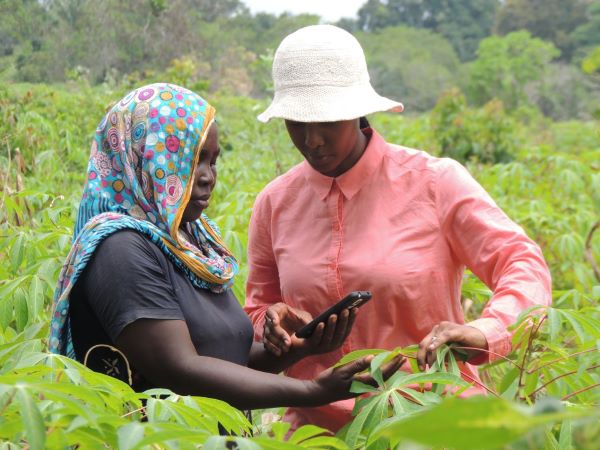PlantVillage, a Penn State-sponsored project through its mobile application is helping cassava and maize farmers from Western Kenya to scan and analyse diseases, by satellite data, affecting their crops and take immediate, proper remedy actions.
This comes at a time research by Masinde Muliro University of Science and Technology, one of the higher learning institutions in the region, indicates that Western Kenya is one of the food baskets of the country but crop yields have remained far much below the world averages mainly due to pests and disease.
However, PlantVillage comes in handy by using artificial intelligence and satellite data to effectively inform even the smallholder farmers on the danger approaching and be able to make the best decision on how to approach it.
All a farmer needs to do is point a smartphone with the app at a diseased plant, and artificial intelligence will analyze the leaves and tell out exactly what has gone awry so that the farmer can appropriately remedy the situation.
“If the plant is not doing well, then the farmer has to do something very different from what has been done before, either apply a pesticide, plant a different crop, or start irrigating,” said David Hughes, Penn State biologist, and the app developer.
Past information
The satellite data also reaches years into the past, so the farmers can see how well their plants are performing historically. On top of that, they can compare their performance with their neighbors. Meaning, maybe it’s not a rainfall problem but a pest problem that’s holding their crops back.
The researchers have been testing the new system in Western Kenya, handing out phones to ‘lead’ farmers, who travel around the community bringing insight to their neighbors.
“We’re able to tell them they have a problem, and with the AI assistant go into the field and see if that problem is a disease that’s causing a decrease in the yield or it’s actually drought,” said Hughes.
With this satellite data, though, farmers can react before it’s too late.
In addition to the detective work, the app is gaining new powers thanks to eyes in the sky. Using free satellite data from the UN, PlantVillage can monitor biomass on a plot of land, giving small-scale farmers insight into how their crops are developing.
$4.96 million grant
Last month PlantVillage received an award grant of $4.96 million grant from Bill & Melinda Gates Foundation to help increase food production for smallholder farmers who face pests and disease of their crops across sub-Saharan Africa.
Through a research project called Delphi, PlantVillage was to create a modeling platform that can be used by researchers globally to improve the speed and accuracy of efforts to identify emerging threats.
The United Nations Food and Agriculture Organization (FAO) estimates that each year, 20% to 40% of global crop production is lost to plant pests and diseases. The global economic cost of plant diseases alone is estimated to be $220 billion, and invasive insects account for an additional $70 billion in losses.








